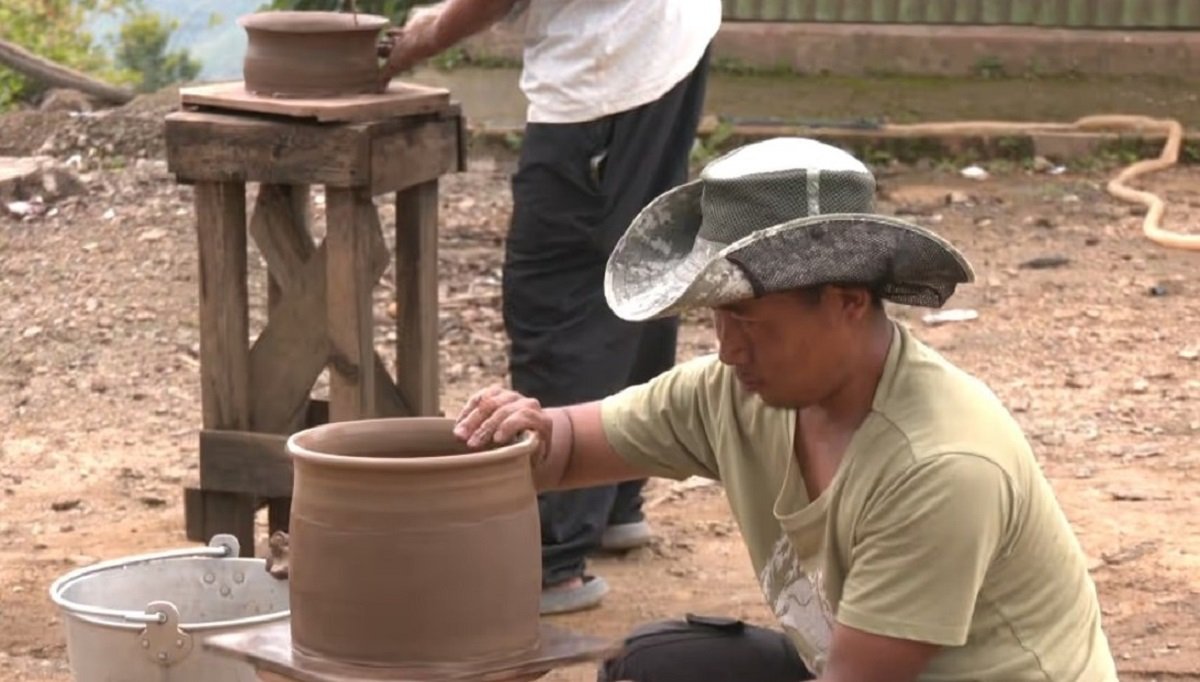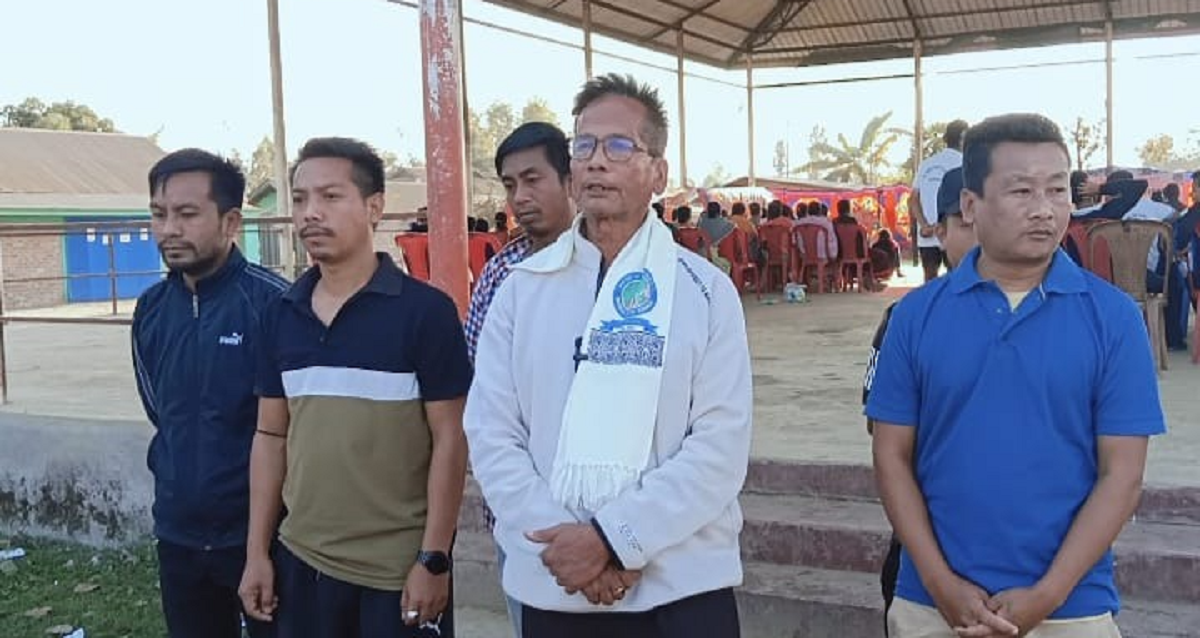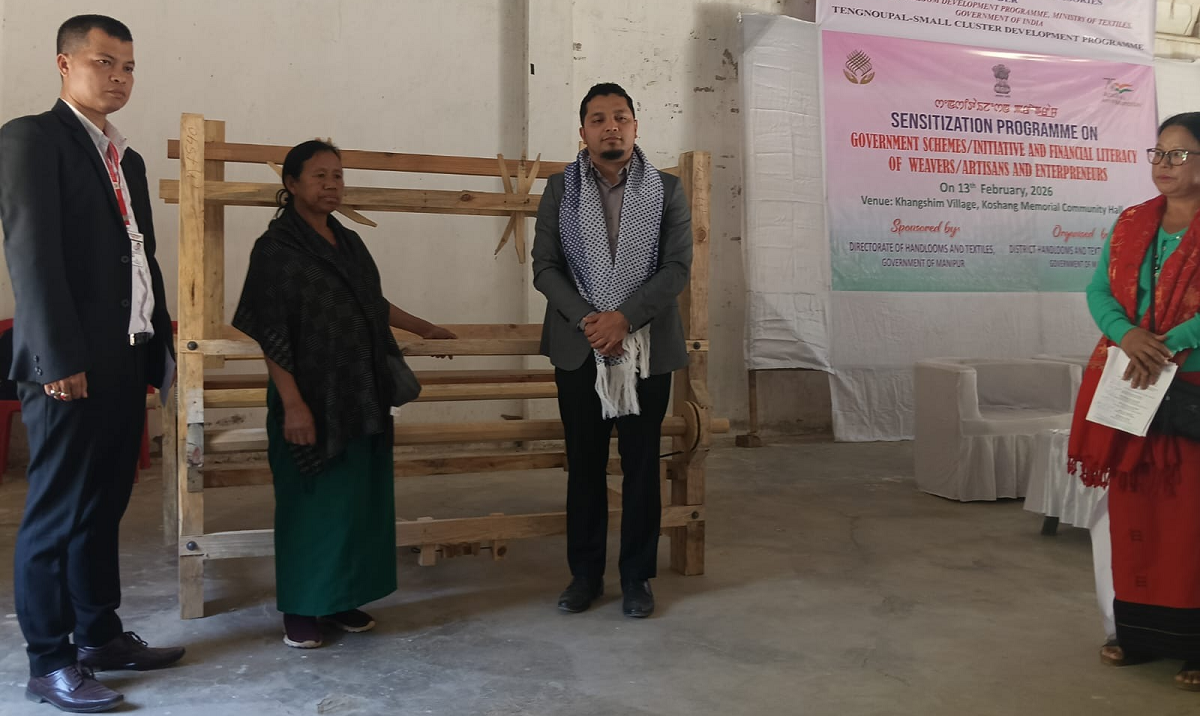Hundreds of households in the Ukhrul region of Manipur are making a living from a traditional trade that is attracting national notice. Artists in Nungbi village still create a distinctive style of black pottery using only hand methods; no potter’s wheels or other contemporary tools are used. A unique combination of crushed serpentine stone and natural clay is used to make the ceramics. The stone is hand-ground into a fine powder, combined with water, formed into pots, sun-dried, and burnt in open kilns. The stone is sourced from neighboring forests.
The environmentally friendly method creates heat-retaining, naturally non-toxic cookware that is perfect for both cooking and serving. In Nungbi, about 200 families actively participate in the craft. It continues to be the major source of income for many. The products, which include serving dishes, tea kettles, and cooking pots, are increasingly being sent to markets outside of Manipur, including Delhi and Mumbai. The dry winter months are when production peaks. Due to inadequate shelter, rainy seasons cause job disruptions and reduce year-round productivity.
Better infrastructure is needed, according to local artisans, in order to increase output and revenue. Black pottery from Nungbi is becoming more well-known for its role as well as its cultural value as consumer demand for handcrafted and ecological goods rises. It displays generations of expertise, the tenacity of the people, and a dedication to maintaining indigenous customs. In the years to come, the Tangkhul Naga tribe’s cultural identity and rural economy may be greatly aided by the continuation and expansion of this traditional craft.





